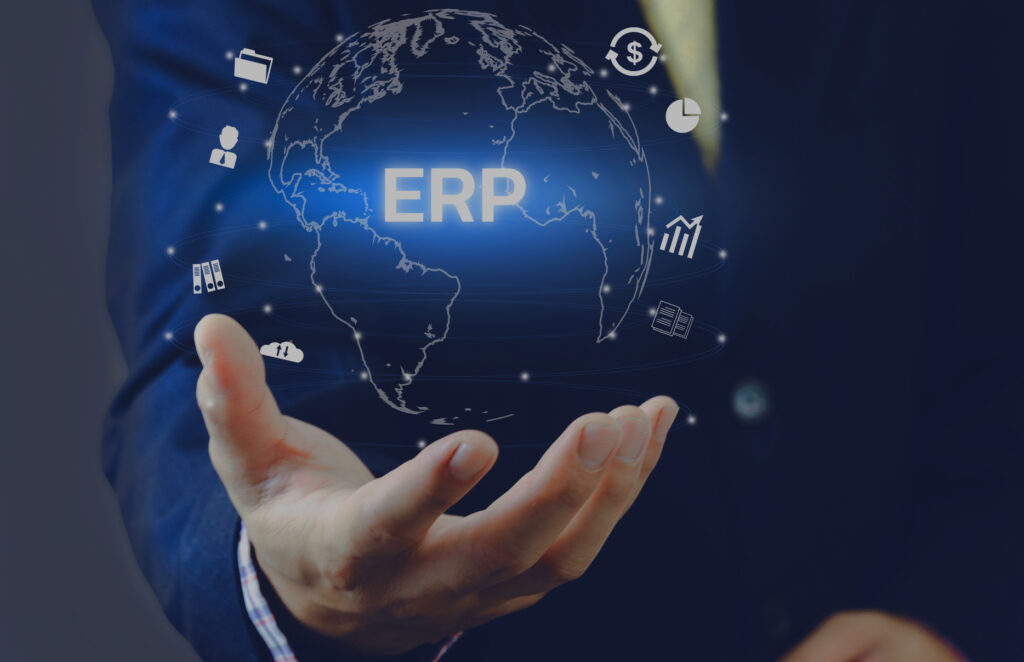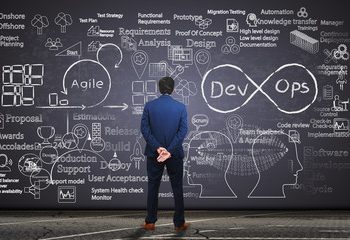The Benefits of a Modern ERP in and after a Time of Crisis
We are now challenged more than ever to embrace the digital transformation journey to cultivate more sustainable industries and to be ahead of the game amidst increasing volatility and crises around the globe. SAP ERP systems set the standards as an example for sustainable operations and practices by structuring, harmonizing, and streamlining business practices, processes and communications.
It has been noticed that there are leading organizations globally that use multiple applications within the company for different purposes, modules, and areas. Ex: System to handle Inventories, System to handle Finance, System to handle Production, System to handle the CRM, System to handle Customer complaints etc.

Have we identified the importance of having ONE single system?
Having isolated applications to serve different purposes within an organization does not provide integrated information and due to the output of one system becoming input to another, there could be manual interventions that challenge the efficiency and accuracy of the data flow.
In the modern world, it is essential to have a single integrated solution with the required modules to serve the fast, accurate, real-time information supply required for the operational management and senior management to take short-term and long-term decisions.
ERP is – One Integrated Solution
World-leading ERP systems like SAP, have identified this need and provide one integrated ERP solution which connects crucial business processes such as finance, supply chain management, after-sales support, Inventory & procurement, and Pipeline Management with CRM (lead generation) into a single information system. ERP is a sensible solution in terms of managing collaborative applications thereby making life easy for the personnel in different layers of the organization.
The ERP implementations within a company or a group of companies will structure, harmonize, and streamline practices and communications within departments and SBUs. A task or an action is no longer isolated in a single silo but has an immediate impact on the related business processes of an organization.
In addition to assisting internal and external transactions and exchanges, an ERP solution will offer the benefits of increasing your company’s productivity and help make decisions based on data, analytics, and AI.
The importance of having a System was emphasized during the COVID Pandemic
Since the beginning of 2020, the Covid pandemic was prevalent in Sri Lanka; the global pandemic severely affected the world’s economies, impacting several key industries across the globe. The pandemic and the post-pandemic crisis – ‘The New Normal’ crushed all areas of the economy by causing major disruptions in supply chains, imports/ exports and tourism- increasing transaction volumes on e-Commerce platforms and stagnation or decline in other distribution channels. Work-from-home and hybrid working models were introduced globally and companies had to adapt to remote working processes and methodologies to sustain. These practices have now created a pressing need for ‘real-time data’ to enable the best decision-making practices in spite of a totally disrupted environment- presenting challenges in productivity for both employers and employees working remotely.
Quarantine, restrictions on movement, and border closures followed by shortages in the supply of fuel and other basic necessities have severely disrupted supply chains and distribution channels hindering the world’s transactions. Geographical areas were rapidly isolated, and industries that sourced supplies mainly from the Asian region such as China were immediately suspended resulting in shortages of raw materials, stock, and empty shelves at the supermarkets.
Companies came under pressure to put forth sustainable plans in place and make difficult decisions; to curb excessive labor and product lines. Strategic decisions that required a lot of thought, needed to be implemented almost daily to adapt to the changes and challenges faced. The pressure on the businesses didn’t cease there, immediately having to prepare for the next day and foresee the days to come.
It is often in a crisis that problems emerge or become a serious concern for continuity. These problems are, in many cases, related to IT systems because these systems are old or obsolete, or because they do not adapt well to rapidly changing challenging situations. Sri Lankan economy has been hit with multiple crises in the recent past, one after the other and the number of crumbling businesses that weren’t progressive in their thinking are now struggling to keep up.
The recent pandemic, which by far is the worst has demonstrated an important point: the ability to be able to adapt quickly to increasingly fast developments and complex challenges. Businesses must be able to adjust quickly, and it is those that adjust the fastest, that will survive.
This problem is more apparent with businesses that have obsolete systems or the ones that do not have an ERP system in place and are juggling with a number of independent systems and technologies that work in isolated silos. These systems are often homemade that have gone through multiple customizations and they don’t resonate with each other. They require multiple repetitive entries. For these businesses, swiftly adapting to change is a difficult task and sometimes it is warfare to accept and change ‘age-old’ ways of doing things. In many cases, these businesses depend on unqualified in-house technical resources to make these systems evolve and fail.
The benefits of a globally recognized ERP
Implementing a well-sought-after system that talks to the realities of any market trend or situation is certainly an important, essential strategic investment to ensure the sustainability of a growth-focused business.
An ERP allows you to:
- Prevents having information stored in several isolated systems which makes it difficult to identify the right source of information as these systems don’t talk to each other
- Have the luxury of accessing quality information fast
- Swift implementations of process changes in information systems
- avoid maintaining multiple interfaces between multiple systems
- Sticking to best business practices with a global ERP.
- Improve the company’s ability to make optimal decisions.
- Reduces repetitive work otherwise done without a system
The void of having such a system, or having a poorly adapted one, is a ‘risk’ you cannot disregard as it is crucial to know how to measure this risk. In a stable or consistent environment, the risk may be accepted or tolerable, but in a crisis, many have been forced to rethink their strategies and pay more attention to their current systems.
Tough decisions are made to analyze the current systems and if they are able to adapt swiftly to the rapidly changing market conditions & opening more opportunities for implementing a globally recognized ERP system in order to overcome the challenges and drive the business towards a sustainable growth while increasing productivity and profitability along the way.
Nadina Dahanayake
Success Stories

Recent Posts





